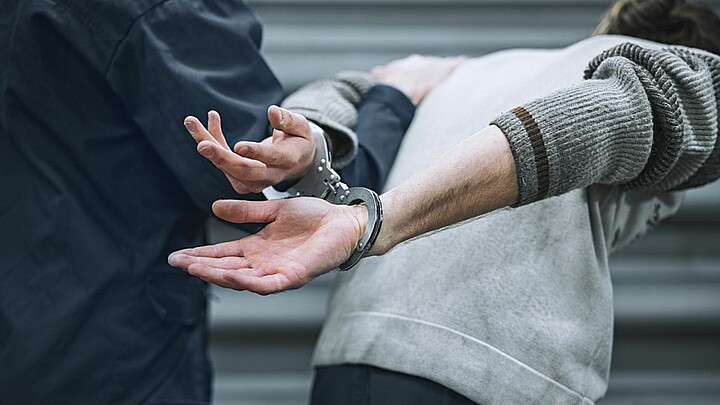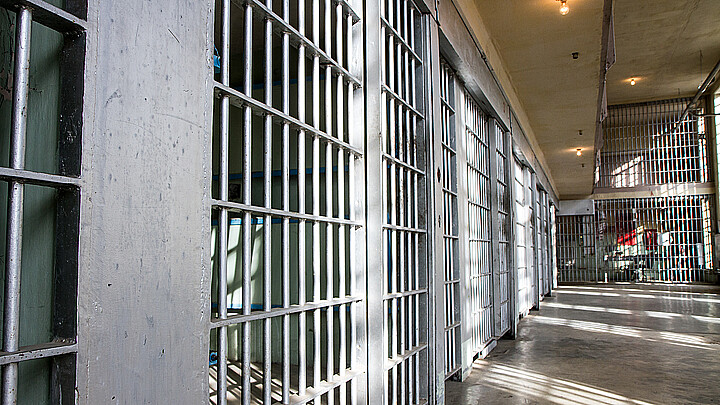Crime
Telemundo anchor under fire for misleading Rittenhouse coverage
Lozano has come under fire by news accuracy watchdogs for confusing his audience in a rant about the Rittenhouse trial that mixed fact and opinion
November 24, 2021 10:18am
Updated: November 24, 2021 2:00pm
Telemundo anchor Nacho Lozano has come under fire by news accuracy watchdogs for confusing his audience in a rant about the Rittenhouse trial that mixed fact and opinion.
Lozano “accuses the judge of bias and influencing the jury, blames Rittenhouse for the five counts he was absolved of, and defends the felons chasing,” according to Kathleen Krumhansl at the Media Research Center (MRC,)
Here's @TelemundoNews' entry into the #KyleRittenhouse Defamation Sweepstakes- courtesy of @nacholozano's hot take on this morning's edition of @hoydia. pic.twitter.com/xzHV4ypJi0
— Jorge Bonilla (@BonillaJL) November 22, 2021
Here's a breakdown of Lozano's Monday morning rant:
First, Lozano confuses the verdict by inaccurately saying Rittenhouse was found guilty, and then quickly corrects himself by accurately stating he was acquitted and found not guilty:
It’s 8 a.m. the time in which I ask you, what’s your take on these two very problematic ironies of life, ironies of the news outlook in this country? First, the trial against Kyle Rittenhouse, of which he was cleared of all charges, of which the accused was accused which was then no longer accused who then became happy because he was found guilty of the shooting, not guilty. He was found not guilty of the shooting that he got himself into in August of 2020 when he killed two persons and injured a third.
Giving Lozano the benefits of the doubt, it seems he was trying to say, was that Rittenhouse "became happy" about being acquitted and avoiding a life sentence in prison. But to take Lozano's reporting seriously, one must consider whether it is newsworthy to highlight the fact a defendant was happy about being found not guilty of multiple murder charges since this is most likely a predictable reaction.
Lozano then makes a fatal attempt at engaging in a legal analysis of the self-defense theory of criminal law by criticizing the judge for not permitting the attorneys to refer to the people killed as victims. But in criminal cases in which the accused asserts self-defense, the dynamics of the trial change.
In a self-defense case, the defendant asserts they are the victim, and while the burden of proof remains with the prosecution the 'burden of production' of evidence shifts to the defense, and the defendant must prove by a preponderance of the evidence that although they committed the act of 'killing' it was justifiable because they were in imminent danger. That's why the judge advised the attorneys they couldn't call anyone a victim. The question of who was the real victim was the very question the jurors were charged with answering. Still, Lozano suggests otherwise:
You’ve already seen the details we showed you earlier today. Relatives of the victims had already imputed the crimes but got even more upset at the judge who, unbelievably asked that the victims not be called victims because that seemed unbiased to the judge. Because the prosecutors and the defense would have to label him according to the judge’s perspective, the deceased. All that was missing was for them to be told not to play the victims here, because you got in the way of the bullets that were defending someone else’s property.
Lozano then criticizes the judge for simply conducting a self-defense trial according to the accepted rules of criminal procedure and suggests Rittenhouse had no right to engage in the defense of others because he resided in a different city than where the killings occurred. In reality, the defense of others can occur anytime, anywhere as long as the person who takes action "reasonably believes" others are in imminent danger. The same applies to self-defense. Lozano seems to be confusing basic self-defense and defense of others with something called "the castle doctrine," which removes "the duty to retreat" in one's own home.
But the judge didn’t say that, although it seemed that way. He was ultimately absolved and almost hailed as a hero because the jury said that the young man fired upon the victims in self-defense, although it was not his own defense hold up. The funny thing is that he lived in another city, so his self-defense was in defense of someone else, you figure out who that might have been because he defended the property of others because his own (property) was far from the scene, and this brave person, armed with an assault rifle, defended an empty car lot and killed two individuals in a town that was not his own, getting into a fight that was not his own, but ended up being in self-defense of someone else. Is that clear? Well, the trial kind of ended up that way.
Rittenhouse was acquitted by a 12-person jury after more than 25 hours of deliberations. He originally faced five charges after fatally shooting two people and wounding a third during protests in Kenosha, Wisconsin last summer. While the jury's decision drew harsh criticism from the public, legal experts say the verdict was predictable.
In a statement, Kenosha County District Attorney Michael Graveley said that he and his colleagues “respect the jury verdict....We ask that all members of the public accept the verdicts peacefully and not resort to violence."










